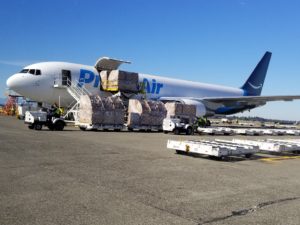No products in the cart.
U.S. Supreme Court rejects UPS’ appeal to raise postal rates
 In a move that is being considered a win for Amazon, the U.S. Supreme Court on Monday rejected an appeal from United Parcel Service (UPS) that would have required the U.S. Postal Service (USPS) to raise the prices it charges for package delivery. The USPS has an agreement with Amazon to deliver the vast majority of its packages.
In a move that is being considered a win for Amazon, the U.S. Supreme Court on Monday rejected an appeal from United Parcel Service (UPS) that would have required the U.S. Postal Service (USPS) to raise the prices it charges for package delivery. The USPS has an agreement with Amazon to deliver the vast majority of its packages.
UPS had argued to the High Court that the postal service’s deal with Amazon gives the e-tail giant an unfair advantage by charging lower prices for package delivery. UPS said, “postal pricing has departed from Congress’ requirement that the Postal Service compete on a level playing field with private companies for package delivery.”
In its rejection of the appeal of United Parcel Service v. Postal Regulatory Commission, the Court said it did not agree with UPS that the USPS operated under an unfair pricing model, siding with a previous appellate court ruling declaring that the pricing model was valid.
The U.S. Congress used to have the power to regulate postal rates until 1970, when the Postal Regulatory Commission was given authority to establish price floors for products where the USPS faces significant market competition. By establishing this policy, the commission prevents the postal service from using revenues from its monopoly on letter delivery – which must be sent to every town in the country – to subsidize the delivery packages, where it competes with private couriers.
A spokesperson for the Postal Regulatory Commission said the body welcomed the decision, “which affirms the improvements the commission has made to its established costing methodology.”
UPS said it was “disappointed” with the Court’s rejection of its appeal, but added that it would “continue to work with the Postal Regulatory Commission to advocate for transparent cost accounting at the USPS.”
The USPS pricing model for package delivery, however, may still be subject to change, as it has come under fire from U.S. President Donald Trump, who said Amazon is being charged artificially low prices as e-commerce demand grows. Trump has requested a review of the postal commission’s pricing model that he said is draining the postal service and making “Amazon richer.”
Meanwhile, Amazon has been increasing its investments in establishing its own package delivery operation, with CEO Jeff Bezos attending last week’s groundbreaking on a $1.5 billion air hub in Kentucky. Amazon has a 50-year lease for a 900-acre facility at Cincinnati/Northern Kentucky International Airport (CVG).

















